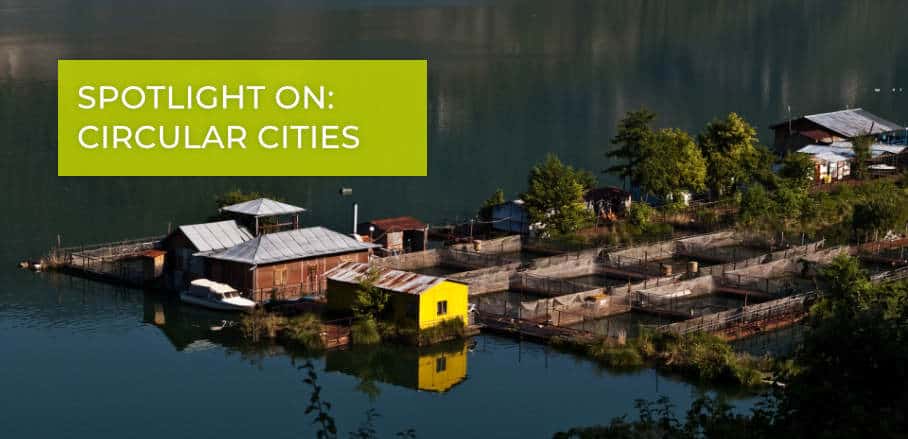Don’t Waste Wastewater! Wastewater-to-Energy in Urban Pakistan
Climate-resilient and energy-efficient cities need to think about water reuse. Especially in South Asian countries like Pakistan, where the potential of wastewater-to-energy systems is incredibly high. By Masooma Batool
The MDGs 2030 Agenda supports water reuse and recycling for continual water supply to all citizens of any country. Access to basic life necessities including food, clean water, shelter, electricity energy, and a healthy environment is a right of every human being. Although the circumstances are not equally favourable for all, with smart technology systems and smart management of resources these goals are indeed attainable.
Wastewater Not to Be Wasted
South Asian developing countries share almost similar water shortage, energy crisis, and improper resource utilisation challenges. Pakistan, with its growing population and consequently increasing water requirement, generates huge volumes of wastewater (WW). Wastewater, however, can and must be seen as a source of recoverable valuable content! Advanced wastewater treatment plants are needed to provide clean water and further the potential of harnessing energy positively.
Wastewater has nutrients, metal contaminants, and organic matter load released from commercial, industrial and residential areas of Pakistan. Thus, without treatment, wastewater discharge deteriorates the quality of soil as water is used for irrigation – and less than 1 per cent of wastewater receives any treatment. Furthermore, the per-capita water availability has declined from 5,600 cubic metres to merely 1,000 cubic metres. As a result, approximately 80 per cent of the population in Pakistan lacks access to clean drinking water.
In addition, with the rising population and expansion of megacities, billions of tons of wastewater and sludge will be produced in the coming years. Therefore, the need to develop proper sewage infrastructure is paramount, channelling municipal wastewater to avoid system collapse due to seasonal water shortage and floods. Moreover, energy generation from wastewater would provide an alternative to pollution-causing fossil fuels and associated import expenditures. Such improvements in energy provision will maintain Pakistan’s economic growth under the sustainability goals agenda.
Wastewater-to-Energy in Pakistan
There are numerous ongoing examples from other countries that prove that such energy-harnessing projects are indeed successful. Denmark has a wastewater treatment system for 200,000 inhabitants that extracts carbon from wastewater, which is digested anaerobically to produce gas and electricity for local supply. Argentina, the U.S., China, and Brazil also have wastewater-to-energy generation systems. In Pakistan, the potential for such systems is also rather high.
Pakistan generates 2301 million cubic metres of wastewater per year. Through an enhanced co-digestion system, the electricity generation potential is approximately 2510 Kilowatt-hours (KWh). Additionally, the 20 million tonnes of solid waste per year consist of 45 per cent organic content that can be taken to increase the organic carbon ratio of wastewater and enable WW plants operation without an external energy source. Food waste, cow dung, and microalgae-cultivation-based biomass energy can be harvested to facilitate the operation of wastewater treatment plants (WWTPs) – and centralised WWTP systems are indeed beneficial as they require comparatively less energy to operate.
Aeration tanks can be provided with photovoltaic equipment, such as in Korea, where an attached 100-kW photovoltaic system enables the delivery of 155.5 MWh/year of electricity to the community. Pakistan produces energy from water, oil, thermal gas, coal, and nuclear power and also imports fuels. With renewable energy sources, the need to import fuel, which currently costs more than 14.6 billion US Dollars per year, would thus be minimised significantly.
Turn Problems Into Opportunities
Currently, the sewer system capacity in Pakistan is not enough to serve the huge volumes of wastewater. Moreover, solid waste is also discarded at dumping sites without organic material recovery. The urgency for energy-independent WWTP’s for material recovery and purified water provision is thus very high. The challenges are water shortage, population growth, rising energy demands, soil and water media contamination, disease risk, and global environmental legislative obligations. Here, all the prevailing problems can be seen as viable opportunities to switch and harness wastewater energy sources! For this work to be executed properly we need to consider R&D, power delivery, market development, infrastructure, and optimal technology integration. At the national level, policy implementation, economic incentives, and fixed water charge policy changes would also favour wastewater installation systems.
We also need to strengthen community interest toward eco-friendly and independent wastewater management systems. Outdated systems can be replaced with advanced technology treatment systems by focusing on urban commercial, industrial and residential clusters. Otherwise, land-based systems with biomass-producing mechanisms to support energy for self-operating systems would be the optimal choice.
In summary, the adoption of wastewater-to-energy systems in Pakistan has numerous benefits: clean water release to the environment and improved quality of soil and agricultural crops; less pollution of ground and river waters; and alternative ways of addressing the water and energy shortage, especially through organic solid waste digestion. Installing advanced treatment systems instead of minor upgrading of existing old infrastructure should thus be our top priority! This supports the country’s social, economic, and environmental stance and prepares Pakistan for a bright future.
- Don’t Waste Wastewater! Wastewater-to-Energy in Urban Pakistan - 12. October 2021
